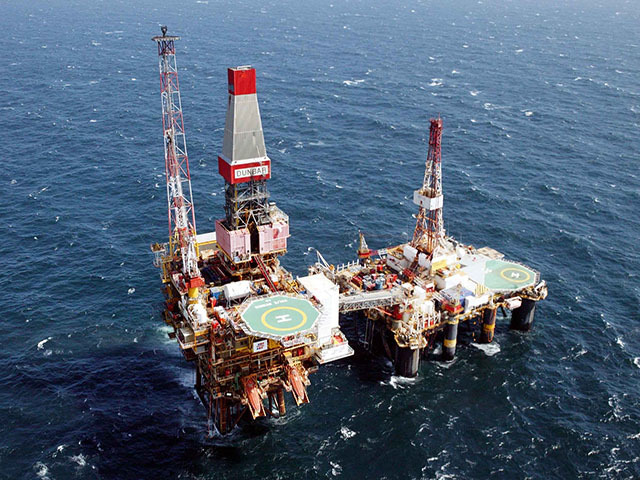
Total SA will appoint Patrick Pouyanne chief executive officer, succeeding Christophe de Margerie, killed in a plane crash earlier this week.
Pouyanne, currently the company’s refining chief and long- touted as a potential successor, will be nominated as chief executive officer at a board meeting in Paris today, a person familiar with the situation said, asking not to be named before an official announcement. Thierry Desmarest returns for a second stint as chairman of the board, the said.
He will have to see through a round of cost cuts as lower oil prices and weak returns from refining eat into profit at France’s largest company by sales. De Margerie, killed Oct. 20 when his private jet struck a snowplow on a Moscow runway, had sold older fields and sought to pare investments in new projects as part of a pledge to investors last month to cut $2 billion in costs a year.
“Christophe de Margerie’s death comes at a delicate time for oil companies,” Olivier Appert, head of IFP Energies Nouvelles research institute, said by telephone. “Oil prices are volatile and the challenges are numerous in many countries like Russia. European companies like Total are also facing downstream issues due to the downturn in refining.”
The company will split the role of chairman and CEO, which de Margerie had combined, the person said. De Margerie’s predecessor Desmarest, who’s remained on the board, will become chairman.
De Margerie pulled Pouyanne from the exploration and production division in 2011 to oversee the petrochemicals business. He was then made head of refining and chemicals a year later to reorganize operations and boost profitability hit hard by Europe’s economic slump.
Teased at company events by de Margerie for his big, rugby player-like stature, Pouyanne also oversaw relations with French unions in the aftermath of a bruising country-wide strike in 2010 at refineries and depots.
Pouyanne, 51, is a graduate of the prestigious French engineering schools Ecole Polytechnique and Ecole des Mines and has long been viewed as being among de Margerie’s potential successors.
Marketing chief Philippe Boisseau had been seen as another possible contender.
Pouyanne will inherit de Margerie’s ambitious program in Russia, which includes a stake in a vast natural-gas development in the Yamal Peninsula. The Total boss vowed to push ahead with the OAO Novatek-led project, even as souring relations with the European Union and the U.S. over the conflict in Ukraine threaten to scuttle it.
“Total needs to focus on executing projects including in Russia to deliver growth over the next three years while at the same time keeping costs and operating expenditure under control,” Ahmed ben Salem, an analyst at Oddo & Cie, said by e- mail.
De Margerie battled to meet targets for raising output after leaks shut the Caspian Sea Kashagan project and an Abu Dhabi concession ended. He pledged to cut investment and curb costs after spending billions on new projects and drilling high- risk exploration wells.
Last month he hired a new exploration boss amid plans to overhaul the company’s drilling strategy after an almost four- year push for big new finds proved disappointing. He announced a cut in output targets and a drive to sell more assets.
Total plans to sell another $10 billion of assets by 2017, adding to the $15 billion to $20 billion targeted from 2012 to this year. It has achieved $16 billion so far under that plan, with $4 billion underway, including sales of a stake in a Nigerian field and the Bostik chemicals business.
De Margerie’s deaths in an accident at Moscow’s Vnukovo airport ended a 40-year career that began in the Paris-based company’s finance unit.
Total changed its governance rules this year so that de Margerie, 63, would have been allowed to stay on at the end of his term in 2015. He declined to state publicly what his intentions were, though he said in the event of a change a successor should come from within.
Recommended for you
